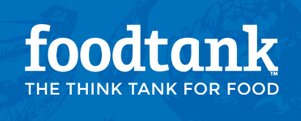



After the examination by The New York Times of epidemiological studies, government reports, corporate records of multinational big food companies and interviews of scores of nutritionists and health experts around the world, reporters Andrew Jacobs and Matt Richtel’s front page story, How Big Business Got Brazil Hooked on Junk Food (NY Times, 9/17/17), part of the newspaper’s Planet Fat series, deserves attention. Earlier this past summer, we reported on a new study on the Health Effects of Overweight and Obesity in 195 Countries over 25 Years (published in the New England Journal of Medicine) which was based on the global research program known as the Global Burden of Disease Study, a collaboration of over 2,300 researchers in 133 countries (of late). This lengthy front page story by NY Times reporters Jacobs and Richtel provides an explanation on why and how the American obesity problem is spreading world-wide: industrial food replacing real food.
As sales growth slows in the world’s wealthiest countries, multinational food companies like Nestlé, PepsiCo and General Mills have unleashed, in the reporters’ words, a marketing juggernaut that is upending traditional diets from Brazil to Ghana to India. The sales of packaged food by the big food industry (which a growing number of nutritionists say is inextricably linked to the obesity epidemic) grew 25 percent worldwide from 2011 to 2016, compared to only 10 percent in the United States. And carbonated soft drink sales in Latin America doubled since 2000, overtaking sales in North America.
A special focus of the NY Times article is on Nestlé’s door-to-door program in Brazil, a nation whose obesity rate has nearly doubled to 20 percent, and the portion of people who are overweight has nearly tripled to 58 percent. Each year, 300,000 people in Brazil are diagnosed with Type II diabetes.
Nestlé’s door to door program serves 700,000 low-income consumers each month and is growing according to the NY Times report. Unlike most food retailers, the company gives customers a full month to pay for their purchases, and its saleswomen (only women are vendors) know when their customers receive Bolsa Familia, a monthly government subsidy for low-income households.
A saleswoman, who previously tried selling Tupperware and Avon products door to door, noted that many of her customers failed to pay: not a problem with Nestlé’s door to door program because in her words, People have to eat. Nonetheless, although 800 products are available through its door to door saleswomen, the most popular are virtually all sugar-sweetened items. (Nestlé owns over 8500 brands in over 80 countries, according to a Wikipedia article.) Despite the growing obesity crisis and potential for long-term medical costs, certain economic benefits are referenced by the reporters: Nestlé employs 21,000 people in Brazil, and its apprenticeship program has trained 7,000 people under 30.
In her letter to the New York Times in response to the article in the New York Times, Anna Lappé, the author of Diet for a Hot Planet, emphasized policies that work to improve public health: restricting marketing to children; promoting healthy food procurement through initiatives like the Good Food Purchasing Program; and passing taxes like the sugary beverage taxes now covering nine million people in the United Sates and every resident of Mexico and several other countries around the world.
To Ms. Lappé’s list, the Slow Food’s 10.000 Gardens in Africa program should be added. And Bridget Huber in her article in The Nation magazine (7/28/16), Welcome to Brazil, Where a Food Revolution Is Changing the Way People Eat, describes the work of Sao Paulo pediatrician Dr. Carlos Monteiro and others, who are part of the good food movement in Brazil, working to preserve traditional diets of real food. In particular, Huber notes that Brazil’s Federal school lunch program is bolstering local farms.
Moreover, 2.5 billion people in the world on 500 million farms are involved in small holder family agriculture and food production according to Steve Brescia, Executive Director of Groundswell International, one of the 17 organizations fighting hunger around the world through regenerative agriculture and agroecology identified by Food Tank, The Think Tank for Food. Another of these 17 organizations is The Land Institute based in Kansas. Its director, Wes Jackson, appeared with Wendell Berry at last autumn’s E.F. Schumacher Lecture in Great Barrington, Massachusetts, which is now available for viewing on line.
(Frank W. Barrie, 9/29/17)





